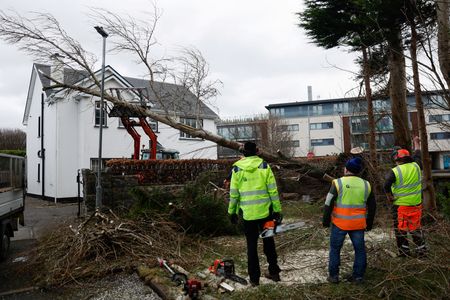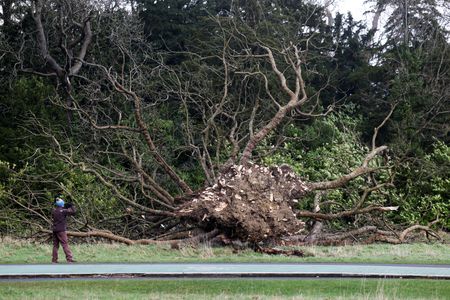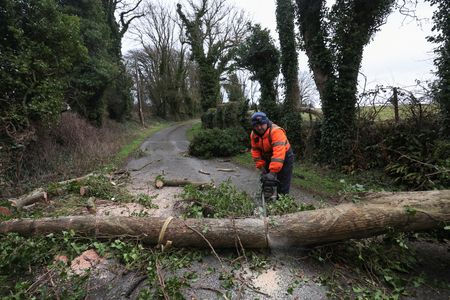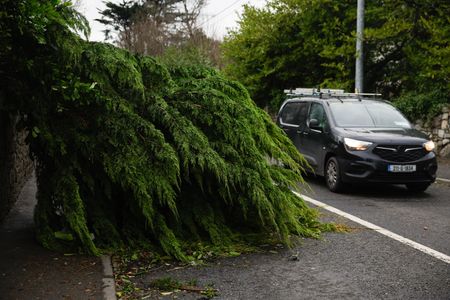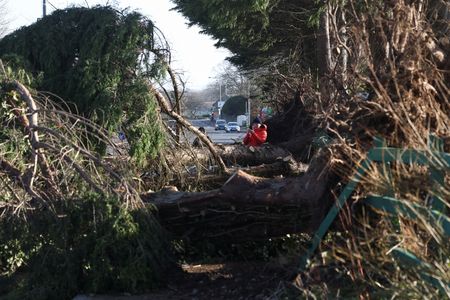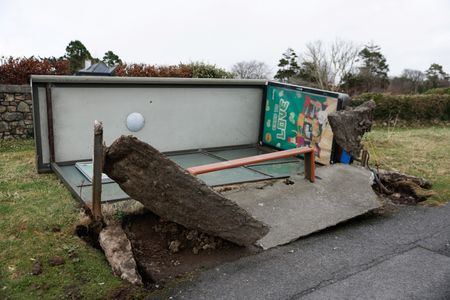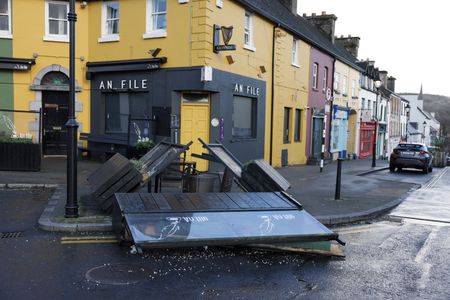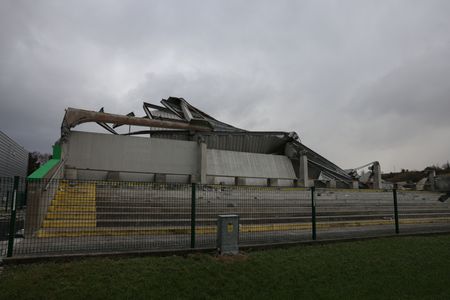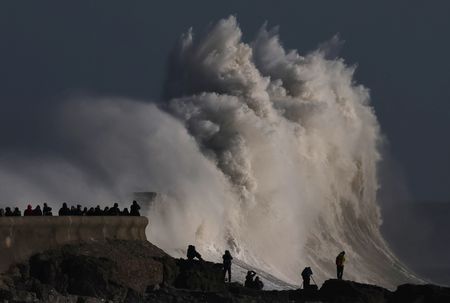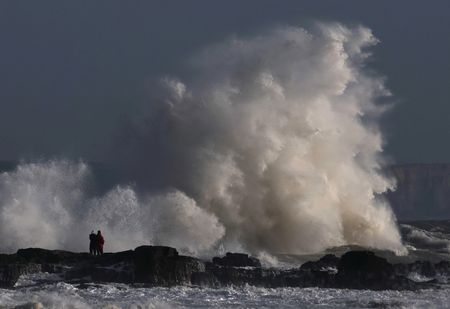By Padraic Halpin
DUBLIN (Reuters) – Record high winds from Storm Eowyn battered Ireland and Northern Ireland on Friday, leaving one man dead and almost one-third of Irish homes and businesses without power and forcing the cancellation of hundreds of flights.
A man was fatally injured when a tree fell on his car in County Donegal, in the northwest of Ireland, police said. Schools were forced to close and public transport ground to a halt.
Officials had warned the storm was set to be one of the most dangerous they had faced and the Irish weather agency, Met Eireann, said a gust of 183 kph (113 mph) overnight at Mace Head in County Galway provisionally broke an 80-year-old record of 182 kph.
Streets in Dublin were deserted during the usual morning rush hour, as stores kept their shutters down and people heeded a warning to stay indoors until a red wind warning – the highest alert level – lifted for most of Ireland from 1100 GMT.
It was the first time a red warning had been put in place for the entire country since Storm Ophelia in 2017, which killed three people.
Crews were clearing fallen trees from roads across the country, while the roofs were blown off a number of buildings and an ice skating ring near Dublin was destroyed
ESB Networks, which provides energy for the whole of Ireland, said “unprecedented” damage to its network had led to power outages affecting 768,000 homes, farms and businesses. It expected more power cuts as the storm tracks northwards.
A further 240,000 properties were without power in Northern Ireland.
A spokesperson for ESB said it would take at least a week to restore power for some customers.
Eowyn is the fourth storm in the past four months to knock out power in parts of Ireland. Climate scientists say the link between climate change and the frequency and intensity of violent storms such as Eowyn is still unclear.
Research shows sea levels are set to rise by at least 1 metre around Ireland this century. Met Eireann warned on Friday of the knock-on risk of coastal flooding.
All schools in Ireland and Northern Ireland were closed on Friday and public transport will not run in Ireland while the red warning remains in place. Non-urgent hospital procedures were also cancelled.
Over 1,000 flights had been cancelled at British and Irish airports at 1000 GMT, around 20% of scheduled flights, according to aviation analytics firm Cirium.
A red warning was earlier in place for British-run Northern Ireland, and in Scotland, the UK Met Office said.
(Reporting by Padraic Halpin, additional reporting by Sarah Young, Graham Fahy and Amanda Ferguson; Editing by Gareth Jones and Alistair Bell)

